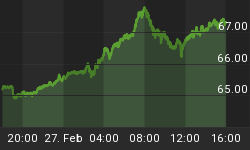American banks have adopted a new business model: Instead of lending money to people who don’t have money and need some, they are lending money to people who already have lots of it but don’t want to liquidate their assets.
Wealthy Americans are now funding their lavish lifestyles while minimizing their tax bills by taking out low-interest loans backed by their investments at record rates thanks to ultra-low interest rates and bullish stock markets.
Wall Street banks are saying that their wealthy clients are borrowing loans backed by their stocks and bonds portfolios more than ever before. Morgan Stanley has revealed that its wealth-management clients have accrued $68.1 billion worth of securities-based and other non-mortgage loans, more than double the figure five years ago. The situation is not any different at Bank of America where $62.4 billion in securities-based loans dwarf its book of home-equity lines of credit.
Even the merely rich are borrowing heavily against their portfolios: Advisers at big firms such as Merrill Lynch (now a part of Bank of America) have dozens of two securities-based loans outstanding in their book of business compared to just one of these loans two decades ago.
Banks don’t typically mind the low interest rates because they continue to earn management fees on assets that clients might otherwise sell. Indeed, top investment banks are willing to lend a borrower at least 50% of a diversified portfolio’s value, though in the past they advised clients to avoid tapping more than 25% of their portfolio value to minimize risk if markets tanked.
Low interest loans
It’s easy to see why the wealthy are increasingly turning to bank loans to fund their lifestyles even when they really don’t need the extra money. In the current environment, many assets are appreciating faster than the interest rates on loans, meaning it makes plenty of economic sense to borrow and use the money to purchase higher-yielding assets.
They also have some legal loopholes making life easier for them: Under current law, investors and their heirs only pay income taxes when their shares are sold. Although the assets may be subject to estate taxes, heirs only pay capital-gains taxes only on gains after the death of the prior owner. In essence, the more they can borrow, the longer they can hold appreciating assets and the longer they hold, the bigger the tax savings.
These loans also have another major benefit: They allow borrowers in need of cash to avoid selling in a hot market. This way, startup founders are able to monetize their stakes without losing control of their companies.
Securities-based loans also face less red tape than mortgage or auto loans; Paperwork is light and the debt often doesn’t show up on credit reports. In fact, many borrowers exercise the option to indefinitely accrue interest without making monthly payments:
“Ordinary people don’t think about debt the way billionaires think about debt. Once you’re already rich, it’s simple, it’s easy. It’s just buy, borrow, die. These are planks of the law that have been in place for 100 years,”Edward McCaffery, a University of Southern California law professor has told the WSJ. McCaffrey is credited with coining the buy-borrow-die phrase.
Giant Escape Hatch
The Biden administration and congressional Democrats are looking to seal those loopholes saying the richest Americans are using them as a giant escape hatch from the income-tax system.
They have unveiled a tax plan that would raise top capital-gains tax rates to 43.4% from 23.8% and also make unrealized gains subject to capital-gains taxes at death after a $1 million per-person exemption. This would make borrowing less attractive but would still leave many of the benefits of deferring taxes by taking loans against wealth intact. But chances of the laws passing in a closely divided Congress, where Republicans are dead-set against any tax increases, remain slim.
















